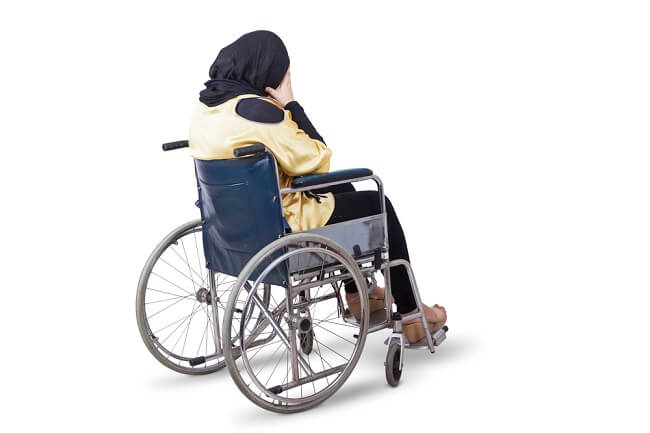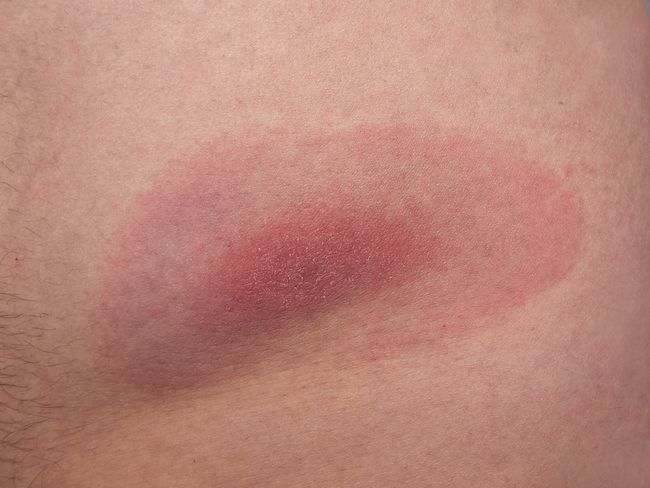Milk allergy in infants is caused by an overreaction of the immune system to proteins in cow's milk. In fact, milk is a good source of nutrition for baby's growth and development. However, you don't need to worry, because there are ways to deal with milk allergies in babies that you can do.
Cow's milk is rich in nutrients, such as calcium, protein, fat, and vitamin D, which are good for supporting baby's growth and development. However, there are times when babies actually vomit, have diarrhea, or have itching after consuming cow's milk. This could be a sign that the baby has a cow's milk allergy.

Cow's milk allergy is one type of allergy that many babies experience. In Indonesia, at least 2-7.5% of babies suffer from cow's milk allergy. This condition is generally experienced by infants under 5 months of age. It is estimated that 1 in 25 babies in Indonesia has a milk allergy.
The risk of a baby having a milk allergy will be higher if one or both parents also suffer from an allergy to something. Not only direct consumption of cow's milk, allergic reactions can also appear if the baby consumes dairy products, such as cheese and yogurt.
Signs of Milk Allergy in Babies
Allergy symptoms shown by each baby are different. There are those who experience symptoms shortly after consuming milk, there are also those whose symptoms only appear a few days later. Signs and symptoms of cow's milk allergy in infants include:
- Fussy or crying a lot
- Breath sounds or wheezing
- Coughs
- Eyes look swollen and watery
- Abdominal pain, bloating, and diarrhea
- Throw up
- Itching and rashes appear on the skin
Although rare, milk allergies can trigger a severe allergic reaction (anaphylaxis) that can cause the baby to have shortness of breath, swelling, to lose consciousness or faint. An anaphylactic reaction is a dangerous condition and needs to be treated immediately by a doctor.
Mothers can also check if your little one has a milk allergy by allergy symptom checker.
Various Ways to Overcome Milk Allergies in Babies
Even though your little one is allergic to milk, you don't need to worry. There are various ways you can do so that your little one's nutritional needs are still met, including:
1. Give exclusive breastfeeding
Mothers are advised to continue to breastfeed their little one, especially if he has an allergy to cow's milk. This is because breast milk is the best source of nutrition for babies. Consumption of breast milk is also said to prevent the recurrence of symptoms of cow's milk allergy in infants.
Breast milk contains a variety of nutrients, such as carbohydrates, proteins, and fats, which are needed for growth and development. However, you need to be more careful in eating food, because whatever food you eat can affect the milk you produce.
If your little one is allergic to milk, you need to avoid foods that contain cow's milk protein and various processed products, such as yogurt and cheese. In addition, Mothers also need to consume foods that enhance and smoothen breast milk so that the baby's breast milk needs can always be met.
2. Give formula milk with hypoallergenic content
Formula milk can be given to infants as a complementary nutritional intake for breast milk. This type of milk can also be used if the mother's condition does not allow to give breast milk to the little one.
However, if your little one has a cow's milk allergy, make sure you choose a hypoallergenic type of formula, yes. This type of formula milk is formula that has been specially made, so it has a lower risk of triggering allergic reactions in babies.
This special formula milk has been specially processed, so your little one can still get nutrition from formula milk without having to experience a recurrence of allergy symptoms. To determine the right type of formula milk for your little one who is allergic to cow's milk, you can consult a pediatrician.
There are 2 types of hypoallergenic formula milk on the market, including:
Amino acid formula milk
Amino acid formula milk is a formula that contains a special amino acid formulation that is not derived from cow's milk protein. This means, this milk is safe for consumption by your little one who has a cow's milk allergy, especially severe allergies.
A study showed that amino acid formula milk can reduce the risk of recurrence of milk allergy in infants and can increase the baby's weight significantly.
However, before giving amino acid formula milk to your little one, it is recommended that you consult with your pediatrician first.
Hydrolyzed formula milk
Partial and extensive hydrolyzed formula milk (extensively and partially hydrolized) is a type of milk that has gone through the process of breaking down cow's milk protein so that it can prevent allergic reactions in babies who have cow's milk allergies.
The amount of protein broken down in extensively hydrolyzed formula (extensively hydrolized) is generally higher than that of partially hydrolyzed formula (partially hydrolized), so that the protein content in milk that can cause allergies is getting less and less.
The molecular weight of protein in extensively hydrolyzed formula is also much smaller than that of partially hydrolyzed formula. This means that extensive hydrolyzed formula can be given as an alternative to cow's milk for babies who are allergic to cow's milk. Meanwhile, partially hydrolyzed cow's milk can be given as a precaution for babies who are at risk of developing cow's milk allergy.
This is what makes hydrolyzed formula milk safer for consumption by babies who have milk allergies.
3. Desensitization therapy
Desensitization therapy or immunotherapy is one method of treatment to reduce the frequency of recurrence of allergy symptoms. This therapy is done by giving a protein or allergy-triggering substance to the baby in a certain amount.
The goal is that the baby's body can tolerate exposure to the allergy trigger, so that the allergy symptoms are less likely to recur. In desensitization therapy, allergy triggers can be given through food or drink or by injection. However, this therapy takes a long time, even years.
If your little one shows symptoms of a milk allergy, you are advised to immediately consult a pediatrician. This is important to do so that the trigger factors for your little one's allergies can be identified and the allergy can be treated immediately.
With early treatment, it is hoped that allergic reactions can appear less frequently so that they do not interfere with the growth and development and health of the little one.









